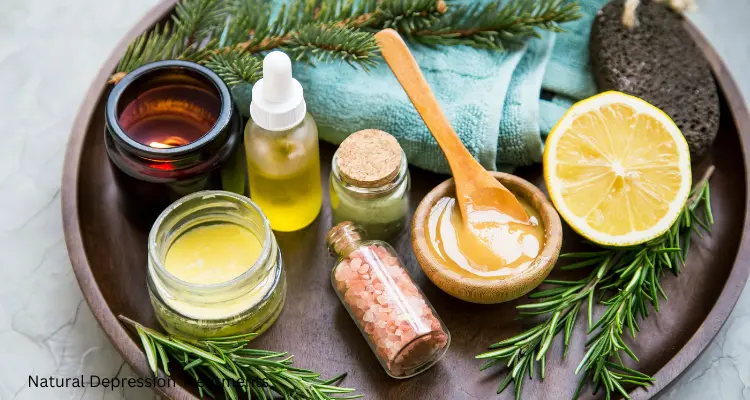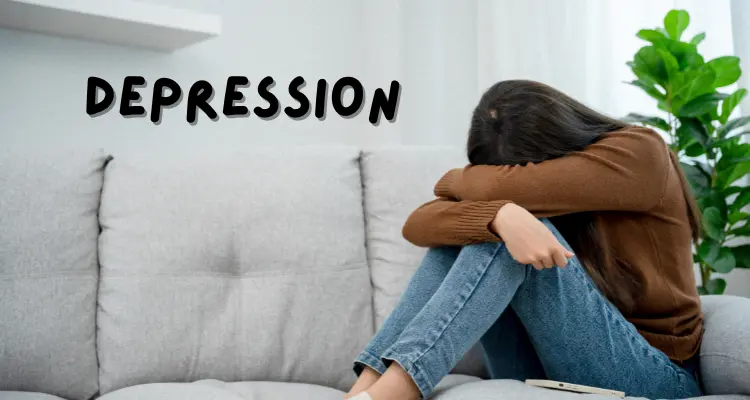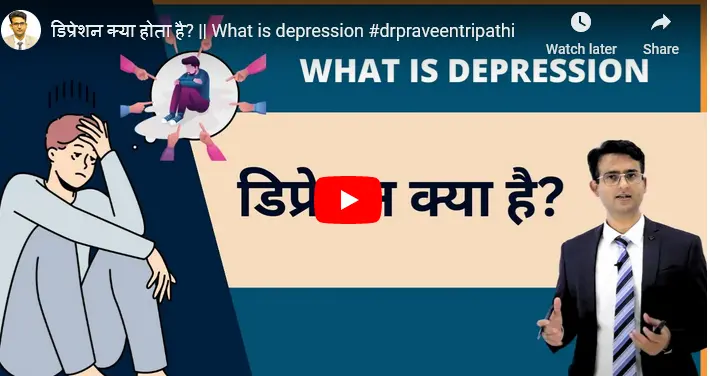What is Natural Depression Treatments?
Natural depression treatments refer to therapeutic approaches that do not involve pharmaceutical medications or invasive procedures. These depression treatments focus on utilizing natural remedies, lifestyle adjustments, and holistic practices to alleviate symptoms of depression and promote mental well-being. Examples include regular exercise, which boosts endorphin levels and improves mood, dietary adjustments such as consuming foods rich in omega-3 fatty acids and antioxidants to support brain health, and mindfulness practices like meditation and yoga, which reduce stress and enhance emotional resilience.
Herbal supplements like St. John’s wort and acupuncture are also considered natural depression treatments, believed to balance mood and energy flow within the body. Natural depression treatments aim to address the root causes of depression and support overall mental health through gentle, non-invasive methods that can be integrated with conventional therapies for a comprehensive approach to treatment.

Depression Treatments
Effective treatments for depression typically include a combination of psychotherapy, medication, and lifestyle adjustments. Psychotherapy, such as cognitive behavioral therapy (CBT) or interpersonal therapy, helps individuals identify and change negative thought patterns and behaviors contributing to depression. Medications like antidepressants may be prescribed to regulate brain chemicals and alleviate symptoms. Lifestyle changes, such as regular exercise, a balanced diet, adequate sleep, and stress management techniques, can also support recovery from depression. In some cases, alternative therapies like acupuncture or herbal supplements may complement conventional treatments. It’s important for individuals experiencing depression to work closely with healthcare providers to develop a personalized treatment plan that addresses their specific needs and supports their journey toward mental wellness.
Which types of depression are most commonly seen in men and women in India?
In India, both men and women commonly experience several types of depression, including:
- Major Depressive Disorder (MDD): This is characterized by persistent feelings of sadness or loss of interest in activities once enjoyed. It can affect daily life and often requires professional depression treatments.
- Dysthymia: Also known as persistent depressive disorder, dysthymia involves chronic low-level depression lasting for two years or more. It may not be as severe as MDD but can still impair functioning.
- Bipolar Disorder: Though less common than MDD, bipolar disorder involves periods of extreme highs (mania or hypomania) alternating with depressive episodes. It affects both men and women in India.
- Postpartum Depression: Occurring after childbirth, postpartum depression can affect mothers, though it can also impact fathers. It’s essential to seek help for both parents.
- Seasonal Affective Disorder (SAD): This type of depression occurs seasonally, typically in the winter months when there is less natural light. It can affect men and women in India, particularly in regions with distinct seasons.
- Adjustment Disorder with Depressed Mood: This type of depression is triggered by a stressful life event, such as job loss or relationship problems. It’s common in both genders and requires appropriate support and management.
Understanding these types of depression helps in recognizing symptoms and seeking timely help for effective management and depression treatments.
Which are best Natural Depression Treatments in India?

In India, several natural depression treatments are widely recognized and practiced alongside conventional therapies. Here are some of the best natural depression treatments:
- Yoga and Meditation: India is renowned for its ancient practices of yoga and meditation, which promote mental well-being through physical postures (asanas), breathing techniques (pranayama), and mindfulness practices. These techniques help reduce stress, improve mood, and enhance overall mental clarity.
- Ayurveda: Ayurvedic medicine, originating from India, offers holistic treatments for various health conditions, including depression. Ayurvedic practitioners may recommend herbal formulations, dietary adjustments, detoxification therapies (like Panchakarma), and lifestyle modifications tailored to individual dosha (body type) imbalances.
- Herbal Remedies: India has a rich tradition of using herbs for mental health. Herbs like Ashwagandha, Brahmi (Bacopa monnieri), Jatamansi, and Shankhpushpi are believed to have adaptogenic and mood-stabilizing properties. These herbs are often used in Ayurvedic formulations or as standalone supplements.
- Aromatherapy: Essential oils derived from plants are used in aromatherapy to alleviate symptoms of depression and anxiety. Oils such as lavender, jasmine, and sandalwood are known for their calming effects and are used in diffusers, massages, or baths.
- Nutritional Therapy: Traditional Indian diets, rich in spices and vegetables, provide essential nutrients that support mental health. Incorporating foods like turmeric, almonds, leafy greens, and lentils can enhance mood and overall well-being.
- Acupuncture and Acupressure: While originally from China, acupuncture and acupressure are practiced in India as alternative therapies for depression. These techniques aim to restore the balance of energy (prana) in the body and alleviate symptoms associated with mental health disorders.
- Nature Therapy: India’s diverse landscapes offer opportunities for nature therapy, including walks in botanical gardens, visits to sacred natural sites, and exposure to natural elements believed to have healing properties.
These natural depression treatments are often integrated into holistic health practices and can complement conventional depression treatments under the guidance of qualified healthcare providers.
How can this issue be addressed in India?
Addressing depression in India requires a multifaceted approach that considers cultural, social, and economic factors. Here are key strategies:
- Increasing Awareness and Education: Promote mental health literacy through public campaigns, school curricula, and community workshops to reduce stigma and encourage early intervention.
- Improving Access to Mental Health Services: Expand and integrate mental health services into primary healthcare settings. Train more mental health professionals, including psychologists and psychiatrists, to meet the growing demand.
- Supporting Community-Based Interventions: Empower community health workers and volunteers to identify and support individuals at risk of depression. Foster peer support groups and helplines for ongoing assistance.
- Enhancing Workplace Mental Health: Implement workplace policies that prioritize employee well-being. Offer counseling services, stress management programs, and promote work-life balance to reduce job-related stressors.
- Integrating Traditional Healing Practices: Collaborate with traditional healers, such as Ayurvedic practitioners, to integrate culturally sensitive approaches into mental health care. Validate and incorporate effective traditional remedies where appropriate.
- Promoting Research and Innovation: Invest in research to understand the unique socio-cultural determinants of depression in India. Develop tailored interventions and treatments that address local needs and contexts.
- Advocating for Policy Change: Advocate for policies that prioritize mental health funding, improve healthcare infrastructure, and enforce laws protecting the rights of individuals with mental health conditions.
By implementing these strategies collaboratively across government, healthcare providers, communities, and individuals, India can improve the prevention, treatment, and support systems for depression, enhancing overall mental well-being nationwide.
Holistic Approaches to Depression
Holistic approaches to depression encompass a range of natural remedies, lifestyle adjustments, and therapeutic practices that aim to address the root causes of depression and promote overall well-being. These approaches include:
- Exercise and Physical Activity: Regular exercise, such as yoga, jogging, or tai chi, helps to boost endorphin levels, improve mood, and reduce symptoms of depression.
- Dietary Adjustments: A nutritious diet rich in omega-3 fatty acids, antioxidants, and vitamins supports brain health and mood stabilization. Avoiding processed foods and sugar can also benefit mental well-being.
- Mindfulness and Meditation: Practices like mindfulness-based stress reduction (MBSR) and meditation cultivate awareness, reduce stress, and enhance emotional resilience.
- Herbal Remedies: Natural supplements like St. John’s wort, lavender, or chamomile are used for their calming and mood-balancing effects.
- Acupuncture and Traditional Chinese Medicine: These therapies aim to restore energy flow and balance within the body, potentially alleviating depressive symptoms.
- Sleep Hygiene: Establishing a regular sleep schedule and practicing good sleep hygiene can improve mood and overall well-being.
- Social Support and Community Engagement: Building strong social connections and engaging in meaningful activities can provide emotional support and reduce feelings of isolation.
Holistic approaches to depression emphasize a comprehensive, integrative approach to mental health care, promoting self-care, resilience, and long-term well-being.
Conclusion
While holistic approaches to treating depression offer promising benefits, their effectiveness varies among individuals. What works for one person may not work for another. Therefore, it’s crucial to explore these treatments under professional guidance and incorporate them into a broader approach to mental health care. By embracing holistic practices alongside conventional treatment, individuals can enhance their well-being and journey toward recovery from depression.
In conclusion, holistic treatments for depression encompass a range of natural remedies and lifestyle adjustments that promote overall well-being. Integrating these approaches with conventional treatments can provide individuals with a comprehensive strategy for managing depression and improving quality of life.

